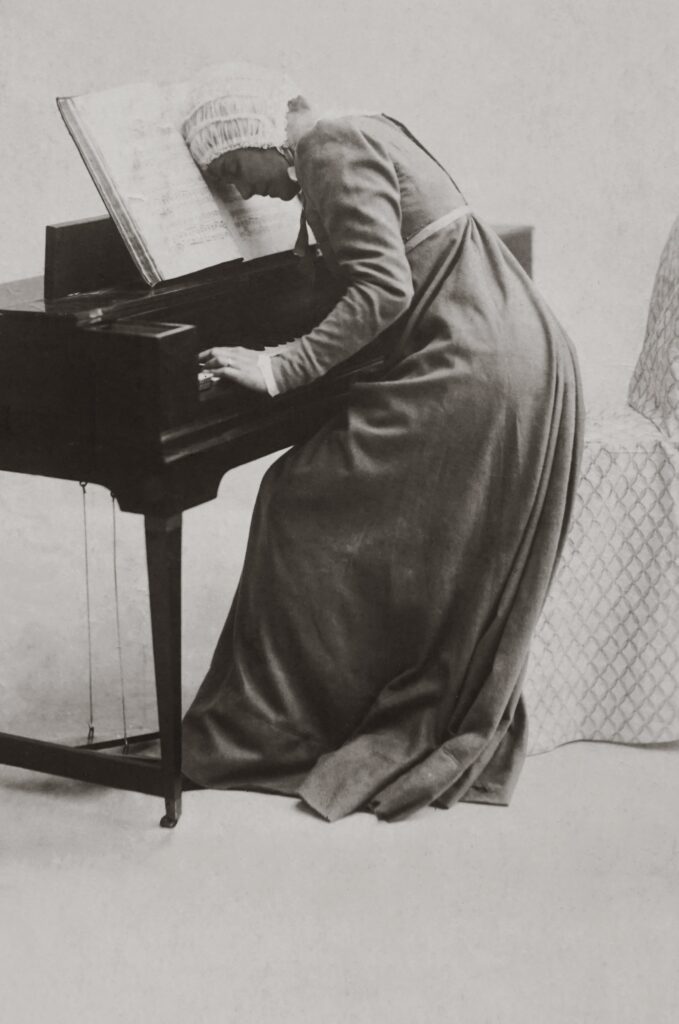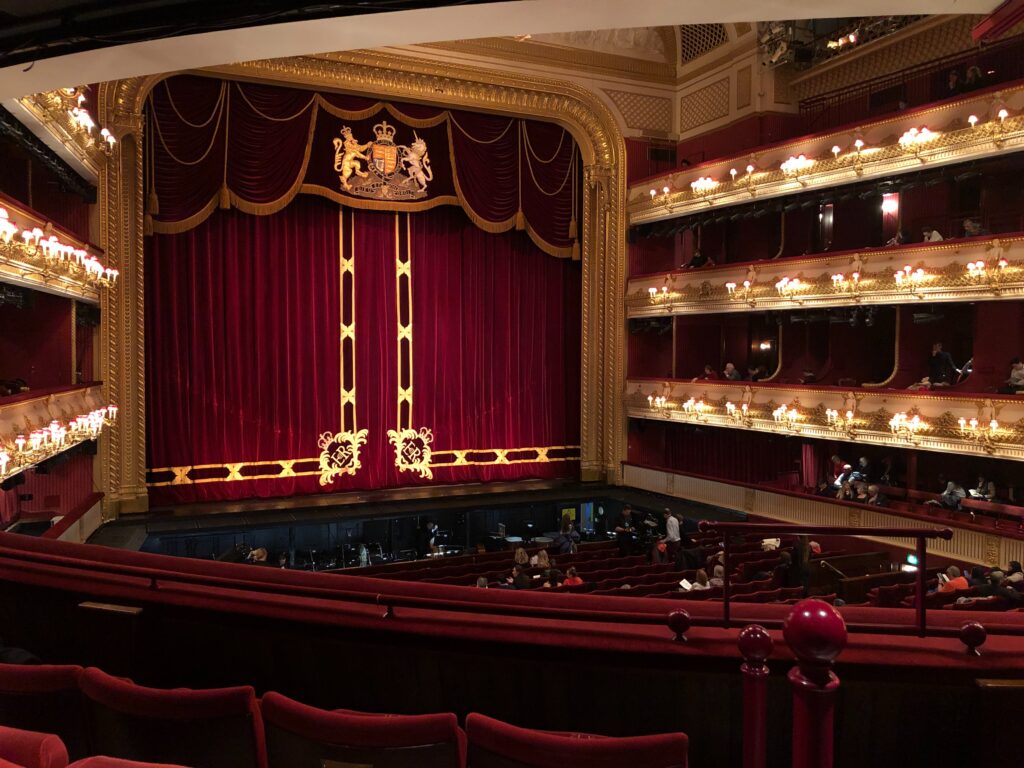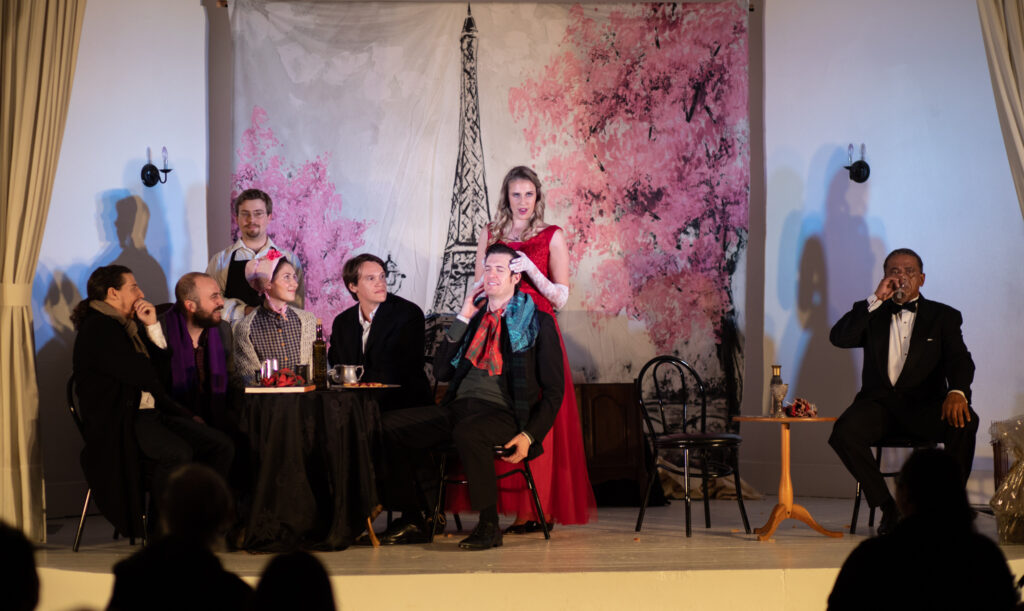As someone who at the age of 18 had never seen or heard an opera I can completely relate to the people who have no idea what opera is. Is it about breaking glass with your voice? About the use of vibrato? Singing ancient music from the past with a bunch of fancy people dressed up for the occasion? Or is it about elderly people listening to something very serious for hours?

Well, just like pop, rock and other music genres have subcategories, so does opera and classical music. I have my favorite operas and composers, however we all have our own taste which is why it’s not black and white about which opera will be the one suited for you. Just because you don’t like a certain song or artist in the pop genre that doesn’t mean that you can’t like other artists’ music within the genre. The same goes for opera.
Unfortunately, sometimes an audience member will only give one opera a chance by a certain composer without realizing that maybe that composer’s music just wasn’t for them.

But first let’s clarify the terms opera and classical music. Classical music is usually used as a broad term for the western music starting from the medieval year 500 BC to present, which is a pretty massive time period with many styles, composers and cultures represented. Today electronically produced instruments exist such as the electric guitar and bass, however before the use of electronic amplification such as speakers, all instruments, including the voice, needed to be able to project enough independently in order to be heard. Today these instruments are the ones we see in orchestras such as violins, flutes, trumpets and bass drum, as well as piano, and are usually the instruments which we think of as part of the classical music category.
For except the use of instruments, opera also uses the unamplified human voice. This means you need to learn to sing in such a way that your voice will be heard without a microphone even when 30-100 musicians are playing in the orchestra. Opera also uses acting, storytelling, stage design and sometimes dance, just like musicals, to take the audience member on a journey.

Classical music and opera can be experienced in different venues, from your local opera house to a church to a small venue – put together by the main opera house or by an indie opera company.
So now you’ve receive all of this information but you’re still not convinced or you still don’t feel like you truly have an idea about what opera is. Well the best way is to experience it and make up your own opinion. Go and see a few different operas by different composers, ask an opera lover for their opinion on what they recommend you to see from your local opera houses.
I highly recommend making the night an event; go out and eat at a local restaurant before the opera, put on some nice clothes (and no you don’t wear a suit or a dress) and let yourself into the world of opera.
Sometimes you will not be moved by the story, artists or music, however when you do, it’s one of the most amazing feelings. So please bear with it and know that it’s a live performance, all bets are off and enjoy the ride.
What is opera to you or how do you describe it to your friends who are not sure if it’s for them?
Please leave a comment and I would love to hear from you.
Emma, I confess that I have been to an Opera only as a child. I love the way you describe the experience made of singing, playing, acting, and telling a story in such an immersive way. I also find fascinating the ritual you suggest to make an event out of it, a tip that I will definitely follow!
Hi Kat thank you so much for your comment! Some of my best performance experiences have been to sing for children. How was your experience seeing an opera as a child? Did you like it?
Hello Emma,
What a great website you have. I loved reading this entry ‘What is Opera’.
I have adored opera since my dad introduced me to Wagner’s “The Flying Dutchman”, when I was around 8 years old. My family were holidaying in St Ives, Cornwall, and the house we stayed at had an incredible record collection, including a great deal of opera. My dad was huge opera fanatic, and put the record on as we looked out to sea. there was a storm at sea at the time, and my dad told me about the legend of The Flying Dutchman.
The music came to life. It painted such a vivid depiction of what I was seeing that I almost could see a Ghost Ship fighting the waves.
I never looked back.
At that moment I knew that I had to learn more about this incredible art form. Dad took me to see the entire Ring Cycle in Cardiff when I was around 13 years old. Crazy when I think of it now, but it moved me so much. I knew the major themes that I had heard on the records that my dad had, but having to wait hours to hear them, while following the story of the Rheinmaidens, giants, the gods, the dragon, and the magic Tarnhelm blew my mind. Wagner’s music was Hollywood, way before Hollywood, he paved the way, and this is one of the reasons I’m studying film scoring at UCLA to realise a dream that I have had since I was 9. Opera paved the way.
To really experience the world, I would encourage everyone to experience it live. There really is nothing like it!
Thank you so much for your kind words Bernard and for sharing your memory about the Flying Dutchman. It sounds like you and your dad had a very special time together and got to bond over something that you both loved! I would love to hear the music that you compose!
A few years ago I did the film music certificate at UCLA Extension and it was one of the best programs I have ever done. I completely agree with you that Wagner’s music, as well as other operas and classical composers paved the way for today’s film music. Film music and opera are definitely both loves in my life and I just see them as extensions of each other.
I have unfortunately never seen Wagner’s Ring Cycle live in full production but I got to hear Christine Goerke sing the end of Wagner’s Götterdämmerung at the Walt Disney Concert Hall just before Corona happened and I was amazed by her singing and Wagner’s music. I can’t wait to hear it all in person in the future!
Well, I have never been at the opera. However, in France, we have the very famous “Opéra Garnier” in Paris. I am not familiar with opera, so, if I have to explain what the opera is, I would say “it’s a kind of a concert with a story and a very high-pitched voice singer and a lot of instruments.”
Notwithstanding, during middle school, I had music class and I studied the famous “Orpheus and Eurydice” opera, where we had to find the different tone of voice or tempo of the orchestra. It was very interesting and funny as well.
And you, what is your favorite opera?
Hi Mathieu, thank you so much for commenting. Haha I love your comment with the high-pitched voice singing. Yes it’s definitely true that there are a lot of sopranos out there however there are a lot of amazing low male voices such as baritone and bass out there as well – unfortunately most haven’t reached mainstream popularity which is why you probably haven’t heard of them.
Here is link to a video of baritone Dmitri Hvorostovsky singing Te Deum from Puccini’s Tosca: https://www.youtube.com/watch?v=Mt8c-113BcM&ab_channel=italianoperafan
That sounds so fun studying Orpheus and Eurydice in middle school. Where I grew up we unfortunately didn’t study classical music in school so I didn’t really know much about it growing up.
I few years ago I would have said that Puccini’s La Bohème is my favorite opera, somehow Puccini’s music and story just tap into feelings which I can’t explain. However I think the best and most accurate answer is that I sort of fall in love with the opera that I’m working on at the time.
I have just watched your video about Dmitri Hvorostovsky. I don’t know how to explain but it is amazing. Even the very famous singers of nowadays cannot have a voice like an opera!